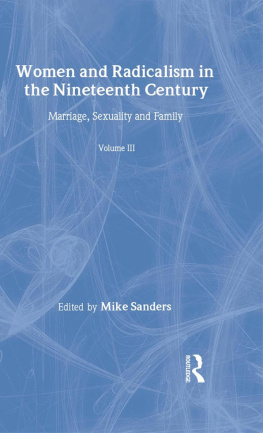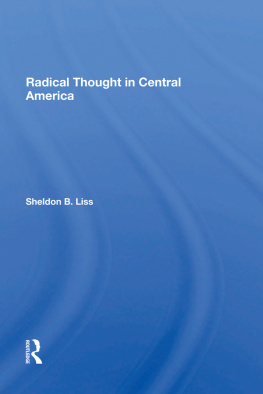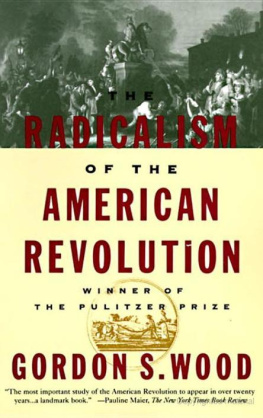Routledge Revivals
Critics of Society
First published in 1967, this reissued essay in the interpretation of radical social thought deals mainly with the radical theorists rather than the doctrines of social and political movements, but makes an exception in an important discussion of the new radicalism of the 1960s. The authors main concern is to lay bare the connections between intellectual dissent and theories of society, and in so doing to explore the neglected subject of the heritage of American radical thinking.
Readers of this book will not only emerge enlightened by Professor Bottomores impressive knowledge of American radical thought, but with a greatly increased understanding of contemporary American history. He ends with the question of whether the new radicalism can find a firmer basis than the student movement or the Negro revolt; can produce an ideology both responsive to the doubts and complexities of our time and capable of directing action to plausible ends.
Critics of Society
Radical Thought in North America
T. B. Bottomore
First published in 1967
by George Allen & Unwin Ltd
This edition first published in 2010 by Routledge
2 Park Square, Milton Park, Abingdon, Oxon, OX14 4RN
Simultaneously published in the USA and Canada
by Routledge
270 Madison Avenue, New York, NY 10016
Routledge is an imprint of the Taylor & Francis Group, an informa business
1967 George Allen & Unwin Ltd
All rights reserved. No part of this book may be reprinted or reproduced or utilised in any form or by any electronic, mechanical, or other means, now known or hereafter invented, including photocopying and recording, or in any information storage or retrieval system, without permission in writing from the publishers.
Publishers Note
The publisher has gone to great lengths to ensure the quality of this reprint but points out that some imperfections in the original copies may
be apparent.
Disclaimer
The publisher has made every effort to trace copyright holders and welcomes correspondence from those they have been unable to contact.
A Library of Congress record exists under LC Control Number: 68081649
ISBN 13: 978-0-415-58100-4 (hbk)
ISBN 13: 978-0-203-84487-8 (ebk)
ISBN 10: 0-415-58100-1 (hbk)
ISBN 10: 0-203-84487-4 (ebk)
PREFACE
This book originated in a series of talks which I gave for the Ideas programme of the Canadian Broadcasting Corporation between March and May 1966. The talks have been published by the CBC under the title Social Criticism in North America. In revising and expanding the text for this edition I have aimed to discuss more fully the views of some major social critics and to present in greater detail the background to their ideas. I have also added a bibliography as a guide to further reading on American radicalism. But I have not attempted to alter fundamentally the character of the work, which I offer as a tentative essay in the interpretation of radical social thought. In particular, I have not ventured upon an account of social and political movements, except briefly in discussing the new radicalism of the 1960s. That would require a different and much longer book. My chief concern has been with the connections between intellectual dissent and theories of society; a subject unduly neglected by historians of social thought, and nowhere more so than in the United States. The heritage of American radical thoughtwith all its achievements, limitations and defeatsshould be of particular interest at the present time when radicalism is on the upsurge again but is still groping for an adequate form of intellectual expression.
T. B. BOTTOMORE
CONTENTS
CHAPTER I
The Growth of Criticism
SOCIAL criticism, in one form or another, has had a place in most human societies. Even in the earliest societies, even in the simplest tribal societies of modern times, there were probably occasions when the manner of organizing a hunt or a feast, a religious ceremony or a marriage, provoked criticism by some individual or social group. But in societies of this kind the scope of criticism is necessarily limited. The force of custom and tradition is very great, life is altogether precarious and difficult, and the established ways of behaving are not to be lightly altered or upset for fear of total disaster. It is only in societies which have become literate, possess economic reserves, have developed an urban life and in some measure a professional intellectual class, that any sustained criticism of the working of society is possible. In the West we like to think of classical Greece, and above all Athens in the fifth century B.C., as the shining example of a society in which, for the first time, free inquiry and criticism really flourished and became an accepted part of ordinary social life. There is some truth in this view, although it needs to be qualified in several respects. There have been other civilizations in which scientific inquiry and social criticism had an early flowering, and notably those of India and China. And on the other side, criticism in Athens was confined within a fairly small group of people, the subjects with which it dealt were restricted, and when the limits were exceeded it was punished. The condemnation of Socrates for corrupting the morals of the young (that is to say, for questioning very fundamental traditional ideas) is the most notorious instance. The example of Athens, in an idealized version, had its greatest effect in the later history of European thought.
The real beginnings of social criticism as a major influence upon human affairs are to be found in Western Europe and North America in the eighteenth century; in a period which came to be called the age of enlightenment by contrast (in some respects, perhaps, a too simple contrast) with the dark ages of absolutism in government and in thought which had preceded it. Many influences contributed to the rise of a critical spirit. The ground had been prepared by the Reformation and the development of the Protestant sects, each with its own interpretation of the Christian religion and of the bearing of religion upon social conduct, as well as by the Renaissance, the revival of classical learning and the growth of humanism. The explosion of knowledge in the natural sciences, resulting from a greater freedom of inquiry and the use of experimental methods, and from the stimulus of industrial growth, encouraged the extension of this freedom and the application of these methods to the study of social life. Social and political changes worked in the same direction. A new intellectual class came into being, separated from the church. A new class of entrepreneurs and industrialists emerged, anxious to be free of feudal restraints and to gain access to the powers of government and administration. Democratic movements sprang up to demand the extension of political rights to the whole adult population. The growth of industry broke down old barriers and restrictions, but at the same time it created new problems: overcrowding, poverty, and insanitary conditions in the rapidly growing towns, changes in the family through the employment of women and children in factories, the need to expand education for industrial and commercial occupations, and to provide leisure activities for the urban masses.












